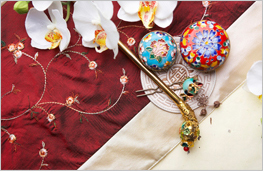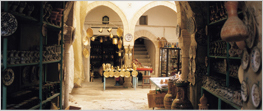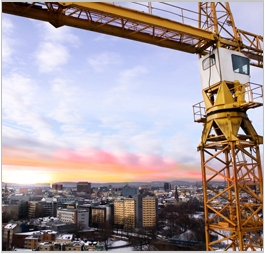
Korean-Arab exchange began when Arab merchants visited United Silla.
Silla traded silk, swords and musk with the Arab world in exchange for spices and glass items. This history of exchange can be seen in

Korean-Arab exchange started with trade and developed greatly in parallel with the rise of the Goryeo dynasty. The Arab world and the Islamic world more generally became well known to Goryeo through the Yuan dynasty, and trade became more extensive. An exclusive community of Arabs was created in Goryeo, and one Arab even became a Goryeo government official. With this active exchange, Goryeo became widely known as “Coree” in the Arab world and Europe. By the time Goryeo fell and passed into history, the name had become so well-established that the nation is still known as Korea to this day.

Culture, science and technology are transferred through exchange. Korean-Arab exchange reached its climax in the early years of the Joseon Dynasty and it greatly facilitated the development of science and technology, and crafts. However in to the mid Joseon dynasty, exchange declined sharply when China decided to close its doors to the world and conservative Confucian culture took root in Joseon. In the late Joseon dynasty, exchange resumed and became active again as a result of enlightenment in Korea and the Ottoman Empire’s establishment of stronger ties with the Far East. A new age of exchange is upon us today in the 21st century.

Korea established diplomatic ties with four Arab countries in the 1960s (Jordan, Morocco, Saudi Arabia, Tunisia), four in the 1970s (Kuwait, Oman, Qatar, Sudan), four in the 1980s (Iraq, Lebanon, Libya, United Arab Emirates), and in the 1990s, diplomatic relations were formed with two more Arab countries (Algeria and Egypt).
In the 1970s, Korean companies began engaging in large-scale infrastructure projects in Arab countries. This led to increased Korea-Arab exchanges and numerous significant projects, including the construction of the Jubail area port in Saudi Arabia, one of the largest in the world, and the Libyan Great Waterway. Arab countries, with their energy-intensive industries, and Korea, focused on manufacturing, have maintained a complementary and cooperative relationship. As Arab countries pursue industrial diversification, the scope of mutual cooperation is expanding to include future industries. Beyond economic cooperation, exchanges and cooperation in fields such as culture, academia, and political diplomacy are developing comprehensively and balancedly. The longstanding partnership between Korea and the Arab world, spanning over a thousand years, continues to evolve, promising a new chapter in their shared history.